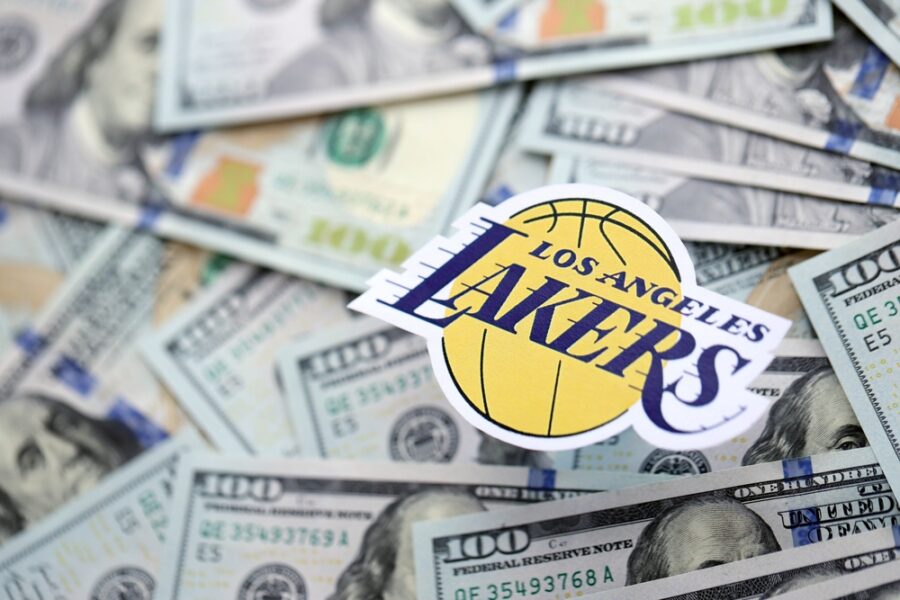NBA seeks player phone records amid gambling probe

The NBA has requested cell phones, documents, and other materials from multiple teams as part of its investigation into illegal sports betting.
According to a report from The Athletic, the inquiry widened after federal prosecutors charged former Miami Heat guard Terry Rozier and Portland Trail Blazers head coach Chauncey Billups over an alleged scheme to sell inside player information to gamblers.
The NBA also has come under pressure from congressional committees, which have asked why it failed to spot the misconduct.
The NBA has reportedly hired the law firm Wachtell, Lipton, Rosen & Katz to conduct an independent review, and investigators have contacted multiple players from the Los Angeles Lakers, following federal charges against former player Damon Jones, who once had inside access to the Lakers.
Lakers Assistant Trainer Mike Mancias and Executive Administrator Randy Mims, both longtime associates of LeBron James, have voluntarily turned over their phones, and neither they nor James has been accused of wrongdoing.
Prosecutors have alleged that Jones sold injury information about two Lakers stars to bettors in 2023 and 2024.
He has pleaded not guilty, but the broader scandal has led to the expulsion of former Raptors forward Jontay Porter and new questions about integrity measures across the league.
After recent gambling probes, the NFL has issued a memo stating that it is working alongside operators, state lawmakers, and sportsbook operators with the intention of tightening its rules surrounding player-based prop bets.
Abi Bray brings strong researching skills to the forefront of all of her writing, whether it’s the newest slots, industry trends or the ever changing legislation across the U.S, Asia and Australia, she maintains a keen eye for detail and a passion for reporting.
Verticals:
Sectors:
Topics:
Dig Deeper
The Backstory
Why the NBA’s inquiry escalated
The current investigation intensified after federal prosecutors alleged a network of information trafficking that touched multiple teams and staff. The U.S. case names former Miami Heat guard Terry Rozier and Portland Trail Blazers coach Chauncey Billups in an alleged scheme to sell inside player data to bettors, while prosecutors also charged former Laker Damon Jones, who pleaded not guilty. The widening probe has drawn fresh scrutiny to the league’s monitoring systems and prompted outside legal help. Reporting by The Athletic, carried by the New York Times’ platform, detailed congressional interest and outreach to Lakers personnel, including staff who voluntarily provided devices, underscoring the scale and sensitivity of the review. For a detailed timeline of how congressional pressure and team outreach converged, see The Athletic’s coverage via the New York Times at this investigative report.
The league’s move to seek phones and documents reflects a broader integrity posture that has evolved since the lifetime ban of former Raptors forward Jontay Porter earlier this year. As the legal sports betting market expands, leagues face a rising volume of betting data, tip lines and integrity alerts. The NBA’s use of outside counsel and the cooperation of team staff suggest an effort to build a defensible record for regulators and lawmakers studying whether current guardrails are adequate.
Capitol Hill scrutiny and cross-league ripple effects
Congressional committees have asked why league safeguards did not catch alleged misconduct earlier, a line of questioning that links the NBA probe to a larger political debate over sports betting enforcement. The National Football League, which has navigated its own waves of wagering violations, recently signaled tighter rules on player proposition bets. That stance is increasingly common across U.S. sports as operators and integrity monitors flag unusual prop-driven patterns. The NBA’s decision to widen its request for records aligns with that momentum: investigators want to map who had access to sensitive injury or availability information and how often it moved beyond team walls.
The oversight push is not limited to Washington. State regulators and governors are taking more visible positions as high-profile cases pile up, often targeting prop markets that can be moved by a single substitution, snap count or shot attempt. The emphasis on props reveals where the perceived risk sits: small-sample events tied to individual performance and pregame status updates rather than final outcomes.
MLB’s parallel saga and a state-level crackdown
Baseball provides a cautionary case study. Major League Baseball placed two Cleveland Guardians pitchers on paid leave this summer after a betting integrity firm flagged suspicious activity around specific pitches. The league extended that leave “until further notice” as its review continued, a stance the team echoed publicly. For the club’s latest position, see the Guardians’ statement linked in Complete iGaming’s report on the pitchers’ paid leave.
Ohio’s response shows how quickly a state can pivot when a hometown team is under the microscope. Gov. Mike DeWine urged the Ohio Casino Control Commission to purge player-based props from the legal menu, arguing that the product invites tampering and harassment. DeWine said he is engaging leagues nationally to back broader limits. His office’s announcement is posted here: DeWine calls for removal of prop bets amid MLB probe. That step matters for the NBA because Ohio is a major basketball market and a bellwether for other commissions weighing similar restrictions.
The MLB case also highlights how integrity work now spans leagues, sportsbooks and regulators. The Ohio commission said it would support MLB while running a separate inquiry. That multi-track model—league discipline, operator monitoring, state enforcement—has become the default architecture in the U.S. betting ecosystem and is likely to frame any NBA outcomes from this investigation.
Players warn of pressures inside the game
The integrity conversation is not confined to front offices and regulators. Brooklyn Nets forward Michael Porter Jr., whose brother Jontay was banned for life, recently described the temptations players face in a market saturated with prop bets and social media scrutiny, predicting the problem could worsen. His remarks, covered in Complete iGaming’s piece on locker-room concerns, point to a key tension: prop markets turn individual minute-to-minute outcomes into tradable events, reshaping fan engagement and, at times, player behavior.
Those comments track with an uptick in reported harassment of athletes tied to bet outcomes, a trend that state officials have started to cite when considering new limits. For leagues, that creates a dual challenge—protecting competitive integrity and player safety—while maintaining lucrative partnerships with sportsbooks that are now embedded in broadcasts and arena signage.
A surging handle raises the stakes
The sheer scale of legal wagering magnifies the consequences of any integrity lapse. Hockey’s recent 4 Nations tournament is instructive: the Canada–U.S. final became the most bet-on hockey game at several U.S. books, with handle comparable to Sunday NFL windows. That surge, detailed in Complete iGaming’s analysis of record hockey betting, shows how quickly fan interest can translate into betting volume when star power and national pride converge. For the NBA, marquee matchups and player-driven narratives produce similar spikes, especially around props.
The market’s growth is not limited to major events. Platform tools and distribution have lowered barriers for content producers and bettors alike, pushing more niche markets into the mainstream. As volumes rise, the signal-to-noise ratio for integrity teams can worsen, making early detection of coordinated betting harder and raising the premium on verified, timely player availability information.
Global regulators rethink online gambling
The scrutiny is international. In the Philippines, a Senate committee is opening hearings on online gambling, weighing bills that range from tighter controls to an outright ban. Lawmakers there cite addiction, youth access and the role of digital wallets in frictionless betting. The debate, outlined in Complete iGaming’s coverage of the Philippine Senate review, mirrors U.S. concerns about how easily minor, app-based wagers can scale into systemic risks for sports and society.
At the same time, the technology enabling rapid rollout of betting content keeps accelerating. Indie-built casino titles can now reach seven-figure bet counts within days, supported by shared engines and turnkey math frameworks. That dynamic, profiled in Complete iGaming’s look at a one-man slot’s million-bet week, underscores the broader challenge regulators and leagues face: innovation cycles move faster than policy cycles. As products proliferate and audiences expand, the cost of a single integrity breach grows.
The NBA’s expanded records request sits at the junction of those forces: an exploding market, rising political pressure and converging integrity models across sports. What investigators learn about information flows around injuries and availability will shape not only potential sanctions but also the next wave of rules on prop markets, data access and staff conduct. With other leagues and statehouses already moving, the consequences will likely extend beyond one team or season.








